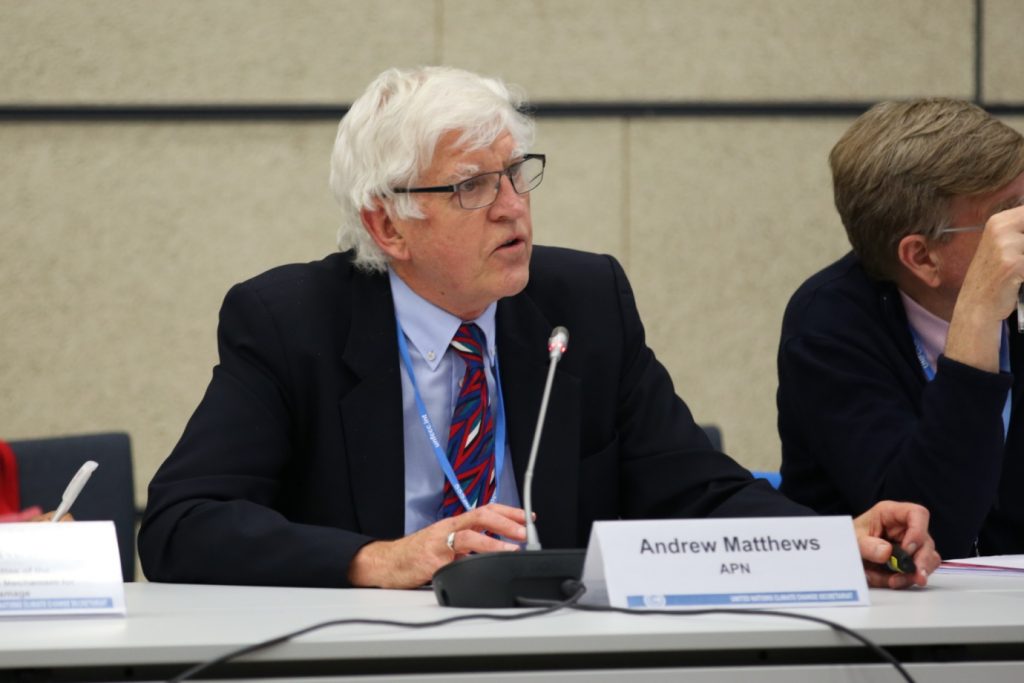
Bonn, Germany, 19 May 2016 — The Eighth meeting of the Research Dialogue (RD 8), SBSTA 44 was held in the World Conference Centre Bonn on Thursday 19 May 2016. More than 200 participants to the SBSTA 44 attended.
Dr. Andrew Matthews of APN’s Steering Committee gave a talk at the Dialogue under Part 2 “Supporting scientific knowledge and capacity building”. Dr. Matthews highlighted two examples of APN’s experience in developing research and policy maker capacity in the Asia Pacific region. The first focuses on the vulnerability of home garden systems to climate change and its impacts on food security in Bangladesh, India and Sri Lanka. The project raised the awareness of the vulnerability of home garden systems and their importance to food and nutritional security of households. Dr. Matthews pointed out that the resources provided by APN for this project also resulted in the project scientists being invited to serve on national level committees that deal with food security and climate change issues.
The second project highlighted was the impact of climate change on food security and biosecurity of crop production systems in small island states in the Pacific. This project had highlighted that food security is impacted by slow onset and extreme weather events in all of the countries participating in the project. Further, the study showed that all small island states suffered from a lack of individual and institutional capacity to deal with the issues of food security and the protection and importance of biodiversity.
Dr. Matthews discussed how APN’s focus on climate change adaptation had become a significant part of the portfolio of projects we support. As an example, he summarised a project from South Asia that is entitled “Enhancing the capacity of policymakers and practitioners in India, Sri Lanka and Nepal on loss and damage related to slow onset events in the region”. He highlighted that South Asia is particularly vulnerable to slow onset events. It is a region where the population and economy are highly dependent on natural resources and climate sensitive sectors, and that it is already witnessing the loss of livelihood, reduction in agricultural productivity, negative health impacts and displacement. He emphasised three points that have come from the study so far, namely the importance of:
- Mobilising scientists, policy makers and practitioners to comprehensively assess the impact of slow onset events and prepare a comprehensive response;
- Spreading awareness about loss and damage caused by slow onset events to people and ecosystem managers;
- Sensitising, engaging and building the capacity of stakeholders, particularly policymakers and practitioners to develop appropriate solutions.
Finally, he highlighted 6 projects under the portfolio of Climate Adaptation Framework to give participants a feel for the diversity of projects currently supported by APN.
The presentation by Dr. Matthews can be found at: http://unfccc.int/science/workstreams/research/items/9475.php
—
(Update 26 September 2016)
The final report of the Research Dialogue is available at: http://unfccc.int/files/…/researchdialogue_2016_2_summaryreport.pdf